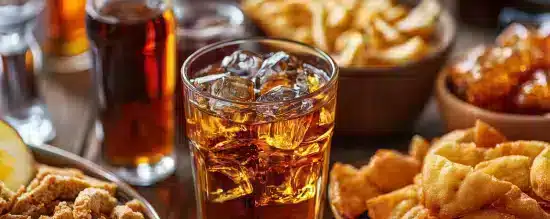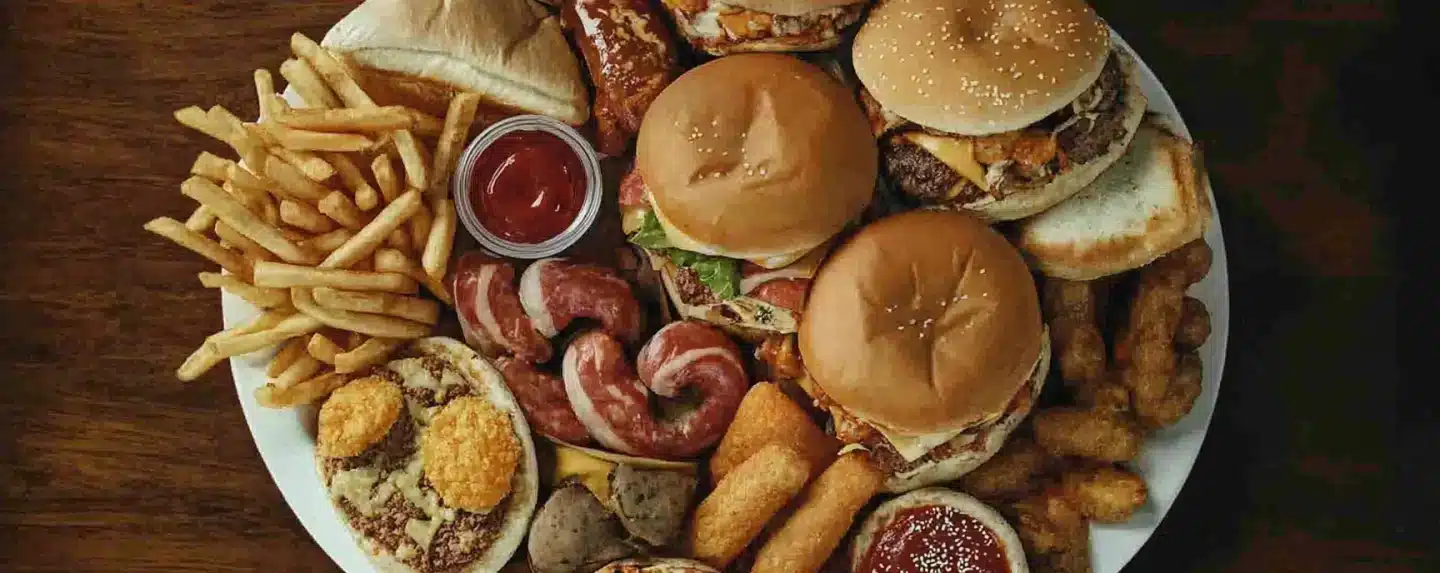
Avoid These Worst Foods for a Concussion Recovery
If you’re recovering from a concussion, knowing the worst foods for a concussion to avoid is crucial. Certain foods can increase inflammation, disrupt nutrient balance, and slow brain healing. In this article, we’ll identify the specific foods to steer clear of to support a smoother recovery.
Key Takeaways
- Avoid foods high in processed sugars, saturated fats, and alcohol to prevent increased inflammation and impaired brain recovery after a concussion.
- Processed meats, trans fats, and sugary drinks should be limited as they can disrupt blood flow and contribute to cognitive decline during recovery.
- Maintaining hydration and opting for nutrient-rich foods are crucial for supporting optimal brain function and accelerating recovery post-concussion.

Foods That Can Worsen Concussion Symptoms
Certain foods can be detrimental to concussion recovery by increasing inflammation, disrupting nutrient levels, and hindering brain healing. Avoiding specific foods is just as important as choosing the right ones to ensure a smoother recovery from a mild traumatic brain injury.
Processed sugars and saturated fats are particularly harmful as they can increase inflammation, adversely affecting brain recovery.
A drop in essential nutrients like magnesium and zinc often occurs after a concussion, impairing the brain’s ability to heal. Avoiding foods that contribute to nutrient decline and worsen inflammation is vital for recovery.
Knowing which foods can exacerbate concussion symptoms can significantly impact your recovery.
The following sections will detail specific types of foods to avoid, including alcohol, processed sugars, and saturated fats.
Alcohol
Alcohol is one of the primary beverages to avoid after a concussion. Drinking alcohol during recovery can slow down healing and may lead to quicker intoxication. Drink alcohol consumption impairs cognitive recovery, worsens cognitive problems, and increases the risk of sustaining additional injuries due to impaired coordination.
Alcohol also raises the risk of seizures during recovery, further complicating the healing process. It hampers decision-making abilities, increasing the chances of accidents. Waiting at least 1 to 2 weeks before consuming alcohol after a concussion is advised to minimize these risks.
Processed Sugars
Processed sugars should be reduced for better recovery after a concussion. These sugars can hamper brain-derived neurotrophic factor (BDNF) and neuroplasticity, crucial for brain recovery. Consuming processed sugars can lead to energy spikes and crashes, complicating cognitive recovery.
Avoiding processed sugars and opting for complex carbohydrates can help maintain stable energy levels and support brain healing. This dietary change can significantly impact the speed and effectiveness of concussion recovery.
Saturated Fats
Saturated fats are harmful during concussion recovery as they promote inflammation and impair brain-derived neurotrophic factor (BDNF), essential for cognitive function. High levels of saturated fats can negatively affect neuroplasticity, hindering brain recovery.
Saturated fats can slow the healing process of brain cells by promoting inflammation. Opting for healthy fats like those found in fatty fish, nuts, and olive oil is better for recovery.
Why You Should Avoid Processed Meats Post-Concussion
Processed meats can hinder brain recovery due to their high levels of saturated fats, sodium, and additives, all of which can exacerbate symptoms and slow down healing.
Limiting processed meats can significantly improve your recovery. The next sections will detail why high sodium content and preservatives in processed meats are detrimental to brain health.
High Sodium Content
Excessive sodium intake from processed meats can disrupt normal blood flow to the brain, affecting recovery. Impaired blood flow can negatively impact nerve cell function, slowing down the healing process after a concussion.
Maintaining optimal blood flow is essential for your brain recovery, making it recommended to reduce sodium intake by avoiding processed meats.
Preservatives and Additives
Preservatives and additives in processed meats can negatively affect concussion recovery. Preservatives can interfere with brain healing processes, and high sodium content can further impair nerve cell function and reduce blood flow to the brain, exacerbating concussion symptoms.
Avoiding processed meats containing preservatives and additives can enhance recovery from a concussion. Opting for fresh herbs and natural protein sources is a healthier alternative.
The Impact of Caffeine on Concussion Recovery
Caffeine can impede concussion recovery due to its potential to irritate the brain. Excessive caffeine consumption can interact with digestion and appetite, negatively impacting recovery efforts. Understanding caffeine’s impact on concussion recovery is crucial for informed dietary choices.
The following subsections will explore how caffeine affects cognitive function and the risk of dehydration, both of which are critical factors during the recovery process.
Cognitive Function
Caffeine can negatively impact cognitive recovery during concussion healing. Research suggests it may interfere with problem-solving, memory, and other cognitive functions.
Limiting caffeine intake can support optimal brain function and recovery, ensuring a smoother and faster healing process.
Dehydration Risk
Hydration is essential for maintaining optimal brain function, especially during concussion recovery. With the brain being 73% water, proper hydration is crucial. Caffeine can contribute to dehydration, impairing brain healing and recovery.
Ensuring adequate water intake supports brain health and facilitates faster concussion recovery. Avoiding caffeine helps maintain proper hydration levels.
Artificial Sweeteners: A Hidden Danger for Concussion Patients
Artificial sweeteners pose significant risks to individuals recovering from concussions. They may contribute to neurotoxicity and worsen brain inflammation, delaying recovery. Cutting artificial sweeteners out of the diet during post-concussion recovery is crucial.
The next subsections will delve into the neurological effects and increased inflammation caused by artificial sweeteners, highlighting why they should be avoided.
Neurological Effects
Commonly found in sugar-free and low-calorie foods and beverages, artificial sweeteners can detrimentally affect brain health during concussion recovery. Certain artificial sweeteners negatively impact brain cell function and increase inflammation, potentially disrupting recovery processes and exacerbating symptoms.
Avoiding artificial sweeteners is crucial for optimal concussion recovery due to their harmful neurological effects.
Increased Inflammation
Artificial sweeteners may heighten inflammation levels, exacerbating concussion symptoms and leading to further injury. Inflammation can delay the healing of brain injuries, severely impacting recovery.
To promote brain health and facilitate faster recovery, avoiding artificial sweeteners and opting for natural sweeteners with anti-inflammatory properties is important.
Contact us today and we will help you get the compensation that you deserve.
Foods High in Trans Fats
Trans fats are detrimental to brain health, impacting overall recovery during a concussion. They disrupt cell membrane integrity, impairing blood flow to the brain and hindering healing. Fast food contains harmful trans fats and additives that exacerbate inflammation, negatively impacting brain health during recovery.
Understanding the impact of trans fats on brain recovery can help make better dietary choices. The following sections will explore how trans fats impair blood flow and increase oxidative stress.
Impaired Blood Flow
Trans fats, often found in fried foods, baked goods, and processed snacks, can lead to reduced circulation and impaired blood flow to the brain. Impaired blood flow can delay concussion recovery by limiting oxygen and nutrients necessary for healing.
Avoiding trans fats is crucial for supporting brain health and recovery following a concussion.
Increased Oxidative Stress
High intake of trans fats is linked to increased oxidative stress in brain tissue, leading to cellular damage and inflammation. Trans fats can elevate oxidative stress levels, contributing to the deterioration of brain cells and overall cognitive function.
Trans fats are unhealthy fats that can significantly affect brain health, making them a key food group to avoid during concussion recovery.
How Sugary Drinks Affect Concussion Recovery
Sugary drinks can cause energy spikes followed by crashes, negatively impacting brain function and cognitive performance. Their high sugar content contributes to increased inflammation, delaying recovery from concussion injuries.
In the following subsections, we’ll explore how sugary drinks cause energy spikes and crashes and contribute to inflammation, making them detrimental to concussion recovery.
Energy Spikes and Crashes
Sugary drinks can significantly impact energy levels during concussion recovery, causing rapid fluctuations and leading to sudden energy surges followed by significant drops.
Avoiding sugary drinks can help maintain stable energy levels and support cognitive recovery.
Inflammation
Processed sugars can lead to inflammation, negatively affecting brain health and recovery. Inflammation can delay the healing of brain injuries, severely impacting the recovery process after a concussion.
Avoiding sugary drinks is crucial for promoting brain health and facilitating faster recovery from concussion.
Why Fast Food Should Be Avoided During Concussion Recovery
Fast food can negatively affect brain function due to its high levels of unhealthy fats and preservatives. Its consumption can hinder healing after a concussion due to adverse effects on brain health. Foods rich in trans fats can elevate the risk of cognitive decline and contribute to mental health issues such as anxiety and depression.
Understanding the impact of fast food on brain recovery can help make better dietary choices. The following sections will explore how fast food lacks essential nutrients and has high caloric content, complicating recovery.
Lack of Nutrients
Fast food often lacks essential vitamins and minerals important for brain recovery. It is devoid of essential nutrients like omega-3 fatty acids and antioxidants, critical for brain repair and cognitive function. The absence of these vital nutrients can hinder the brain’s recovery process, affecting the healing of damaged cells.
Essential nutrients play a vital role in brain injury recovery following a concussion. Opting for nutrient-rich foods supports your recovery.
High Caloric Content
Fast food is characterized by high caloric content, detrimental to concussion recovery. Excessive calories can lead to potential weight gain, complicating recovery and posing additional health risks.
The cumulative effects of high caloric consumption and resultant weight gain can significantly hinder concussion recovery. Avoiding fast food and choosing healthier, lower-calorie options support a smoother recovery process.
Frequently Asked Questions
Why is it important to avoid alcohol after a concussion?
It’s crucial to avoid alcohol after a concussion because it impairs cognitive recovery and increases the risk of further injuries from poor coordination and decision-making. Prioritizing your recovery is essential for long-term health.
How do processed sugars affect brain recovery after a concussion?
Processed sugars hinder brain recovery after a concussion by negatively affecting brain-derived neurotrophic factor (BDNF) and neuroplasticity, essential for healing, while also creating harmful energy fluctuations. It’s crucial to limit processed sugars for optimal brain health during recovery.
What are the risks associated with consuming artificial sweeteners during concussion recovery?
Consuming artificial sweeteners during concussion recovery can exacerbate neurotoxicity and brain inflammation, potentially delaying your healing process. It’s advisable to limit or avoid these sweeteners while recovering.
How does high sodium content in processed meats impact concussion recovery?
High sodium content in processed meats can hinder concussion recovery by disrupting blood flow to the brain, which negatively affects nerve cell function and slows healing. It’s essential to limit sodium intake during recovery to support optimal brain health.
Why should fast food be avoided during concussion recovery?
Fast food should be avoided during concussion recovery because it lacks essential nutrients vital for brain healing and can lead to weight gain, complicating the recovery process. It’s crucial to prioritize nutrient-rich foods to support overall health and recovery.
Last updated Thursday, August 29th, 2024







